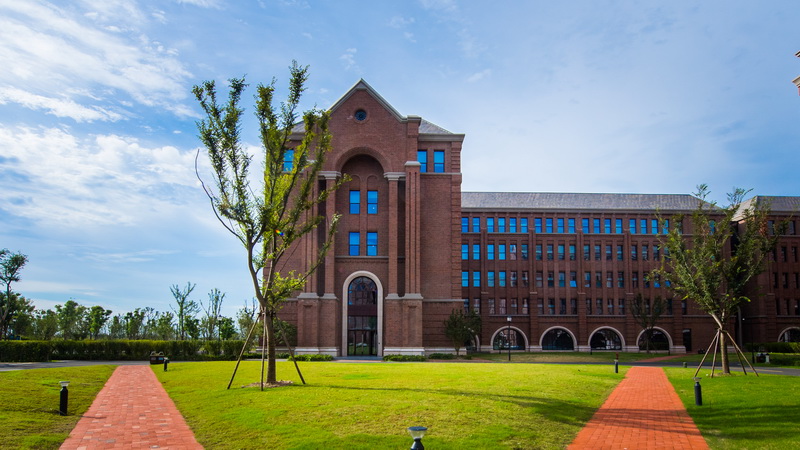My origin intrigues many people. Not that I am an alien or have complicated and mixed family heritage, but I am simply an overseas Chinese born in Singapore, a very small nation that predominantly uses English as her official language for communication. Westerns often think that I am from somewhere in China while Chinese citizens think that I am from the south. “Exactly!” I will often reply with a cheeky smile, “I am from the very South!”
The question of “Why did I go to China to work?” often comes up. A simple question with a simple answer - I decided to go. The factors behind this decision are, however, complicated. The major draw is being able to experience life in a foreign country culturally different from my past six years in the USA. Maybe this desire is a common trait in people from a small country. This, however, is not without any challenges. After nearly two years, I am still learning the intricacies and adjusting to the way of life and the working culture here. Both professional and personal life experiences have, since, been a mixed bag. I was, once, berated for not knowing how to read a restaurant menu filled with fancy Chinese names. But, more often, the locals are friendly and genuinely amazed that a Singaporean can speak Chinese so well!
Teaching
I started this position after my postdoctoral stint at Columbia University, USA with some teaching experience garnered from Singapore and the USA. My first official course in ZJUI was to teach “CS101 Introduction to computing” to the then freshmen of 2018. I was a teaching assistant for control system during my Master degree at the National University of Singapore, so programming is like second nature to me. How was my course? As the old saying goes “A picture tells a thousand words”, the attached handiwork from these 155 freshmen will tell you the answer as they playfully misinterpreted “CS” from “CS101”. I really enjoyed giving a “suffering” time to these exceptional students. Talk to any of them, they can fill you in with all the “horror” stories. Interesting enough, I think most of them love this course and did well for it. I am very grateful for their tremendous positive feedback on my teaching. This is my first official course feedback and is a great encouragement for me to continue with this same course in 2019.
Comparing students in Singapore, USA, and China, the majority of the Chinese students here are extraordinarily assiduous and respectful. They work hard to finish the never-ending homework and assignments nearly on-time as well as being prepared for all the “exciting” weekly examinations. Another compliment to these students is their show of gratitude to their teachers. It is heartening to see all the thank-you notes at the end of the semester. I have seen nothing like this elsewhere in the world! Satisfying and empowering!
Research
My current research is in a not-so-hot field dealing with very hot things. I investigate how heat moves between atoms and molecules to improve the lifetime, efficiency, and efficacy of any electronics and energy-conversion devices. “Can we control how heat spreads in a device?”, “Can we efficiently convert heat directly into electricity?”, “How can hydrogen energy be used safely in our daily life or is it a potential H-bomb?” are some of the many questions that keep my mind busy (and my hairs white) when I am not teaching, not answering “weird” questions from my students, and not entertaining the numerous administrative tasks.
To solve the above questions requires an amalgamation of knowledge from physics, chemistry, material science, electrical, computer, and mechanical engineering. It has been a difficult challenge to find students who have the necessary skillsets to tackle these problems. ZJUI undergraduates are willing but lacked the necessary knowledge and time, graduate students are scarce resources. The Chinese governments at both the national and provincial level, however, recognize the importance of these questions and have granted me two funded projects within my first year here. I hope I will be able to cooperate with the right students and the excellent academics around China to solve these challenges soon.
Others
A professor in China takes on more official roles than those in other countries. Other than being a researcher, a teacher, an academic advisor, and an administrator, you are also expected to be a class tutor and residential college tutor (unique to ZJU International Campus). There are also student group activities that require a professor to participate as a formal advisor. With limited time, one can either get involved and positively influence the development of these students or spend more time pursuing scholastic achievements that are heavily recognized by the current reward system. Should developing young minds be at least of equal or more important among a professor’s responsibilities? That is a billion-dollar question for an educational institution. I gravitated towards student developments. So far, no tears and no regret as I have experienced joy and life from these roles. Ask me again in a few years, I am certain that I will give you the same answer.
The question of “Why did I come/go to China to work?” is often followed by “Will you leave?” The simple answer is “I came as I am a Chinese, but I will finally leave as I am not a Chinese”. Confused? The former refers to my race and ethnicity, the latter my nationality. Nothing lasts forever, students graduate, and all these will finally pass. It is my hope that I can touch and positively influence as many lives before my stint ends. As to the question of my origin, maybe in my next reply, I will add “there is a growing piece of China in this Singaporean.”
Wee-Liat Ong, Associate Professor, ZJUI
Wee-Liat graduated with a B.Eng in Mechanical Engineering from the National University of Singapore (NUS) and was the valedictorian of his class and recipient of the IES gold medal and Lee Kuan Yew gold medal in 2002. He also received a M.Eng from NUS in 2004 where he developed a robot for performing experiments used in drug discovery. He joined the Institute of Microelectronics, Singapore and worked in the fields of bioMEMS and microfluidics. In 2015 he received his Ph.D. in Mechanical Engineering at Carnegie Mellon University under Prof. Jonathan Malen and Prof. Alan McGaughey, where he studied nanoscale heat transfer focusing on organic-inorganic nanostructured materials using both experimental and simulation techniques. He received several faculty/departmental awards in CMU including the Steinbrenner, the Northrop-Grumman, and the Bushnell graduate fellowships. Before becoming a faculty at ZJU-UIUC joint institute, he was a joint post-doctoral fellow at Columbia University and Carnegie Mellon University working with chemists to characterize novel hybrid materials.





